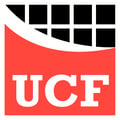Does an actual document or page with content (that acts as a document) launch from this URL?
|
Yes |
No |
|
If the URI launched a webpage with content that matches the requested Authority Document, answer Yes. |
If the URI launched a webpage with content that is not the requested Authority Document, answer No. |
|
If the URI launched a webpage that asks you to sign in, then answer No. |
Examples:
Notice the HTML pages above. Neither one are actual Authority Documents. Both of them describethe Authority Document, but neither are Authority Documents.
Examples of correct URLs:
Both of the above Authority Documents are what you are looking for. The one on the left is a PDF that downloaded to the computer. The one on the right is an example from the online law database where regulations and laws are posted in HTML format.
Example of foreign language URL:

Then there are those documents that are in a foreign language. It’s pretty easy to tell that this one isn’t an Authority Document. However, others aren’t as easy to tell. In the case it isn’t easy to tell, you’ll want to use a tool like Google’s translate button shown below to first translate the page to English.

Example of a section of an Authority Document:

There are going to be times when you get a cataloging request for a part of a document, a subsection, such as the one shown above. This example shows that the request was for an Appendixto a document. The UCF doesn’t catalog subsections, parts, appendices, etc. – only the full document.
When you find yourself in this situation, you have to look for the full title of the document, and then find the link to the document from there. In this case, the document is the Business Continuity Planning document, with the title found at the top of the page.




